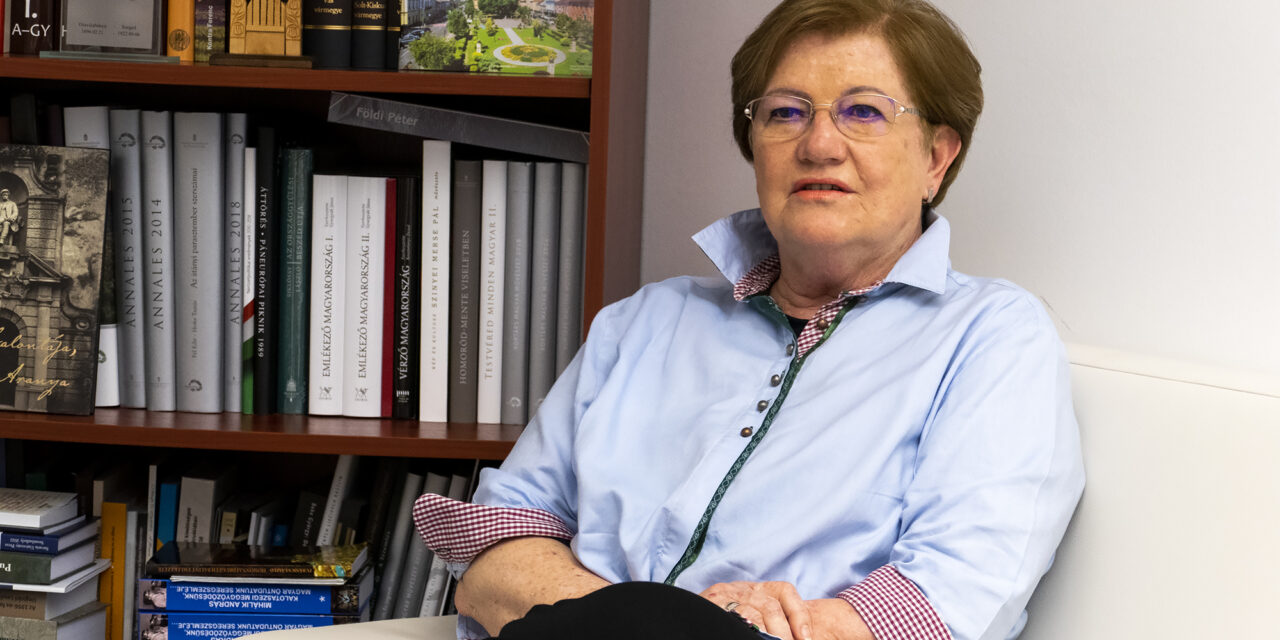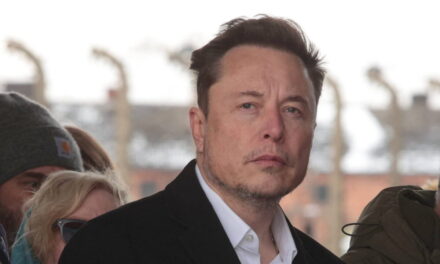What is happening in Transcarpathia is both saddening and outrageous. The more Hungary tries to do for Transcarpathian Hungarians, the worse it will be for them. We also talked about this with ministerial representative Katalin Szili.
- It is very relevant to talk about this, not only because of the war, but also because on November 18 we remembered the Hungarian victims who died in World War II. After the Second World War, they were dragged away and deported to the Sólyva concentration camp. History has perhaps torn the Transcarpathian Hungarians the most out of the Hungarians who have been outside our borders. This is also the case now, because although the war is taking place in the eastern part of Ukraine and theoretically does not affect Transcarpathia, in practice the Hungarians living there still suffer. Let's also not forget that processes restricting their rights took place even before this, despite the fact that Ukraine became an associated country of the European Union on September 1, 2017. In the association agreement, non-discrimination was stipulated, in comparison, on September 5, 2017, the Kyiv parliament passed a decision in which the possibility of education in the mother tongue was broken. And the process continued, language rights were narrowed, it was stipulated that documents published in Hungarian or in the language of some nationality must be published in the same number of copies in Ukrainian, which entails significant and unnecessary extra costs. This includes the fact that the electoral regions were also restructured in such a way that we would not be in the majority anywhere.
- It is also no coincidence that the native minority status was also denied to the Hungarians in Ukraine.
- That's true. Communities were accepted as indigenous, such as the Crimean Tatars or the Kipchaks, but the Hungarian community that did not migrate there, but lived in its own homeland, was not recognized as indigenous. Therefore, they are not affected by the rights that otherwise apply to indigenous national communities.
With that process, which is basically directed against the Russian minority, the baby was thrown out with the bathwater, and the national minority communities that live in Transcarpathia, in their own homeland, were also punished.
– I'd rather say that they took advantage of the opportunity and want to deal with their old enemy, the Hungarians, in one fell swoop. A country aspiring to join the European Union can be expected to comply with the rules that are mandatory for the EU community, but of course if the Union itself does not expect this, they may think that the EU rules are not binding on them. And this appearance is further strengthened by Ms. Ursula, who declares with giddy delight that it is amazing what kind of development Ukraine is producing despite the war. With what? By banning the opposition, priests are persecuted and condemned, churches are banned, opposition politicians are sidelined, sometimes imprisoned, sometimes killed, and the free press and the right to free expression are abolished. The development is indeed serious, but backwards.
– I see a specific process. Many Ukrainians are fleeing from the eastern end of Ukraine to Transcarpathia, which obviously also means that the community of the majority society will become the majority in those areas where Hungarians were still in the majority.
The aspiration is obvious, many hope that we will slowly sell out soon. At the same time, it is encouraging that the unity of the Hungarian community has become stronger, I see how they fear and protect each other.
Obviously, it is not good that this is happening because of the war, but it is good that the cooperation exists. Our task from here in Budapest is to draw the attention of the European Union to the fact that it is not possible to join the Union while persecuting its own national communities under the guise and vortex of war, or in other words, thinking that the war can give it an excuse to to do so.
- Everyone can see that the European Union is not interested in the rights of minorities in the slightest. In fact! Not a single word of condemnation was uttered on their part either when they replaced Hungarian principals at the head of Hungarian schools, or now, when it is already forbidden for students and teachers to speak to each other in Hungarian during the breaks between classes or after classes until 5 p.m., or they forbid doctors to consult with their patients in Hungarian. Don't be offended that I ask like this: why are you optimistic?
"Unfortunately, what you're talking about is true, but I have to keep my optimism, because that's the only way I can continue to fight for their rights." Which of course they do themselves, and I take my hat off to their persistent struggle. What the communities living in the Hungarian national minority in the Transcarpathians or in other countries are going through is not an easy thing. Obviously, we are less able to feel this, but we see it, we know it. It is also true, and this can also be seen from the responses to citizens' initiatives, that they consider the legal institution of citizens' initiatives to be just a cosmetic patch, so that we can check the box, here, the European citizen can also express his opinion. But if you say, none of the proposals are investigated, they are rejected without batting an eye, see Minority Safepack. Now, what could be one of the foundations of my optimism happened during the previous Hungarian EU presidency. My colleague Ferenc Kalmár and I worked out 5 points and principles that, in our opinion, should be included in the minority framework agreement or adopted separately. Now, under the next presidency, we want to get this accepted.
– I admit, I don't know the content of the five points, which are not promoted much by the EU bureaucrats, perhaps not by chance.
– The 5 basic principles are as follows. First: the issue of national minorities is not an internal issue, but a European issue. Second: every country should be obliged to recognize the national minorities living there as state-forming factors in its basic law and constitution. Third: recognize that citizenship is not necessarily the same as belonging to a nation. So someone can be a Hungarian citizen but a Slovak citizen or a Hungarian citizen but a Ukrainian citizen. Fourth: the basis of national minority protection is identity protection, its recognition as a next-generation, citizen or human right. And finally, but not least, fifthly: collective rights must be recognized, along with individual rights.
If this were to be accepted, we would at least have a national minority standard that every country would be obliged to include in its own rules, and there would be a standard that every country must meet, which would guarantee that national minority communities cannot be put in a worse situation.
- Unfortunately, even after this, we cannot be really optimistic, since the leadership of the European Union and some large member states cross the red lines as if they did not exist, they break the existing laws and rules created by themselves as if they did not exist.
– We can look at the situation even in the light of the process related to the Ukrainian war. I see that the politics of regret has become trendy, that everything is given, regardless of what our important interests would like, or whether it is at the expense of the future. This can also be seen in connection with Ukraine's NATO accession and EU membership, which are used to promote global peace processes. Around 2015-16, Putin asked not to have a NATO country as a direct neighbor, they did not want to fulfill this request, which also led to the war.
You can't really be surprised if a psychiatrist with seven children leads the Union, who has no political sense at all.
Today I am in a position I could never have imagined, crying back to Mr. Juncker, who was a Churchill compared to Mrs. Ursula. Even as a woman, I do not understand how a woman can be so insensitive and ignore the interests of the Union she leads. Thanks to his leadership, Europe will slowly become a driving force in the global world.
- Let's return to the affairs of Hungarians. As far as I know, so-called autonomy plans have been created, but we don't know much more than that.
- First of all, it is not us, the motherland, who are called to decide on the forms of autonomy, but always the community that is directly affected. When we think about autonomy, we probably think about territorial self-administration, although it is much more than that, because the granting of cultural and personal autonomy is also important for all of us. We can only support a concept of autonomy that suits the local Hungarians.
Unfortunately, we are not even there to sit down with the representatives of the majority government to clarify what we mean by autonomy.
In no way do we want to create secession, but simply a situation that we could do in the European Union based on the principle of subsidiarity. This means that matters must be decided locally, where the most information is available. I don't see why this shouldn't be supported. In comparison, the European Parliament passed a resolution on the fundamental rights of people of African descent. This is important to them, but I would like to see when they will make a decision on the fundamental rights of indigenous national minorities. Nevertheless, I have to remain optimistic because I can only stay in politics as long as I am optimistic.
– If politics has already been discussed, let's end the conversation with that. I apologize in advance for asking about a personal matter. You have been cursed from both sides. First from the right, when your vote saved Ferenc Gyurcsány from falling...
"Then let's clear this up now." It is only one such occasion, but at that time Gyurcsány was not yet prime minister. He was Minister of Sports, in that capacity he responded to an interpellation when the acceptance and rejection received the same vote. House Speakers don't usually vote, except in the event of such a deadlock, and that's when I pressed that button. Throw the first stone at me who, in such a situation - when I belong to that community - acts differently. I note that the right-wing would be happy even if it had turned out as they claim, because as long as Gyurcsány is in politics, the right-wing has every chance to continue governing. Even with the fact that Gyurcsány is now manipulating from the background and pushing his wife in front of him. I note in parentheses that if it was anyone else who pushed his wife forward, they would have shouted snakes and frogs at him a long time ago. So I saved a sports minister then, if that's a rescue. If I didn't accept your answer, what would have happened? Nothing in the world, the majority in the committee would have accepted it.
- In the public mind, however, this push of a button lives on as if it had saved the Prime Minister of the DK, who was still a member of the MSZP at the time.
"Because that was in everyone's interest." So I thought it was strange that the right-wing turned their noses at me, I know now that the left doesn't like me, which I'm actually proud of. Many people still attack today, so I conclude that I am in the right place.
I have always considered myself a popular-national, socially sensitive person, and this is why the socialists or the left didn't like me even then.
I was too popular and national, I was a believer even when it was not fashionable. Now I see that many of the politicians who resented this at the time are wearing crosses around their necks...
"I didn't even understand then what a believer was looking for in an atheist party."
- Yes, many people have already asked this. Let me tell you a story. My former high school singing teacher recently passed away. His wife told me that when the teacher saw me on TV 2-3 days before his death, he said: I'm glad that Kati is in her rightful place. This is very important to me and I don't care what a DK politician, who even now considers me a traitor, says to me. Even now after 14 years! He does not consider the one who was president of the socialists but left and formed an opposition party a traitor, not those who stood on the other side, only me. It is incomprehensible that they are still dealing with me. They don't want to remember how many times I was right when I said that their basic position should be clarified on many issues. Let's say their relationship with the nation, their relationship with Christianity, they did not clarify '56, nor who shot into Teve Street. I could list the things that they did not face, including the Ószöd speech, which was obviously leaked by Ferenc Gyurcsány, because he thought it was a speech of truth.
I find all the whipping around me pathetic, especially after I spent 12 years in no man's land after 2010.
I only served my nation while being called an Orbán supporter and a Fidesz-KDNP supporter. That's why I joined KDNP and I'm proud to be a part of it.
Author: György Tóth Jr
Photo: Civilek.info












